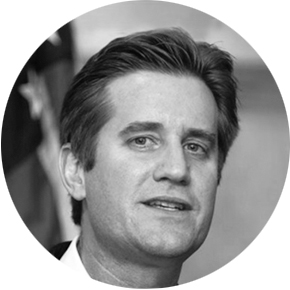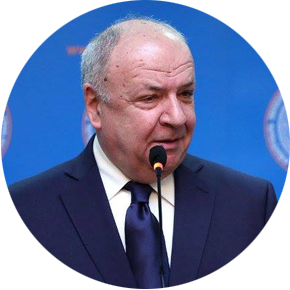The exclusive interview of former U.S. Deputy Assistant Secretary of State and former OSCE Minsk Group U.S. Co-chair Matthew Bryza to Mediamax
- During a lecture in Baku on June 7 you have reportedly said that West made a mistake when it decided to separate the Turkish-Armenian process from the Nagorno Karabakh settlement. This statement created a lot of heated discussions in Armenian political circles and media.
- Well, actually I said the following - it was a mistake for the United States government to end the constructive ambiguity stipulating around whether or not the NK peace process and the Turkey-Armenia reconciliation process were explicitly linked or de-inked.
By explicitly disconnecting both processes, the U.S. offered one of the key benefits Armenia hoped to receive from the NK peace process - reopening the borders with Turkey. Once it was clear, Armenia would receive this benefit without the need to make compromises on other issues in the Minsk Group process. Armenia naturally hardened its negotiating position on NK (and in fact drew off some of the key concessions it had already made).
At the same time, I also said it would be a mistake to explicitly link two processes and to say there can only be Turkey-Armenia normalization if there is a settlement of Nagorno Karabakh conflict. This is an equally destructive position. A much better thing to do is to recognize the truth, the logical truth, which is to inexplicitly link these two processes. If you make progress on one that may mean direct or indirect progress on the other, because progress on one process will improve the mood and decrease the anger and emotionality.
A better policy, which the U.S. government followed until August 2009, was to maintain ambiguity regarding the connectivity of the two processes and to state publicly that progress on one track will reinforce progress on the other track, even though the two processes are not directly connected.
So, don’t explicitly link or de-link the two processes. Let constructive ambiguity work to the advantage of the peaceful settlement.
- When politicians try to link two processes in this or other way, everybody expects compromises from Armenia and not from Azerbaijan or Turkey. And if we talk about Turkish-Armenian relations, Yerevan’s position is clear - let’s open the border and establish relations without preconditions. What else do you expect from Armenia?
- I think that it’s not a helpful approach. All issues that you have just described are handled as an organic whole, and each progress, or each step over that one side gains have to be brought into an appropriate negotiating process by making a concession on the other side, let’s say - return of territories. And so, at any negotiation all of the factors are interrelated. And it’s not easy for either side to pull out one set of factors and focus on those.
I think it won’t be helpful if, let’s say the Azerbaijanis say we are not going to negotiate any further, unless all the 7 territories are returned: return the territories and then we will negotiate further, or return the territories and then we’ll accept the Turkey-Armenia border re-opening.
I think the only way you get to a final settlement is to negotiate all the aspects of Basic Principles at the same time as part of one big deal.
- But the Turkish-Armenian process is not part of Basic Principles at all.
- That’s right. It’s not. It’s a negotiation between two countries. But restoring all the trade links between Armenia and Turkey and Armenia and Azerbaijan - that is part of the Basic Principles. Armenia and Turkey have a right to pursue whatever they want to pursue. What I am saying is that it was a mistake when the United States said explicitly there is no link between Turkey-Armenia normalization and NK settlement.
- So, you say that if there is a progress on NK issue, Turkey will be more interested and motivated to establish relations with Armenia. But there is another opinion, which was voiced by Armenian Foreign Minister Vartan Oskanian still in 2001. “If Turkey opened the border with Armenia or re-established the relations, that would make Yerevan more constructive on NK issue, because Yerevan would soften a lot of demands in terms of security”, he said then.
- This is another argument that many of us, including myself, has made during the Minsk process. I myself have made this argument in Baku. But Baku says “no”.
- Turkey openly took a pro-Azeri position at the very beginning of the conflict and closed its border with Armenia during the NK war. Obviously, the Turkish government made a mistake about 20 years ago and when today you talk about any linkage between the processes, it looks like you are trying to legitimize that mistake.
- When I was a Minsk Group Co-Chair I was against any attempts to explicitly link the two processes. And I myself discussed these issues with Turkey’s President, Turkey’s opposition leaders and parliamentary leaders saying “please don’t explicitly link the NK process with Turkey-Armenia normalization”. At the same time, I am saying that it’s also unhelpful explicitly to de-link them. So, it’s better just to not even talk about whether they are linked or de-linked. See the reality, the logical reality which is at the heart of what Vartan Oskanian was saying: that if you make progress on one, you’ll make progress on the other one. That’s the reality.
- Do you think that Turkish-Armenian protocols signed in 2009 are still alive, or one day Armenia or Turkey will formally withdraw from this process?
- I think neither Armenia nor Turkey will withdraw from that process. There was a very difficult constructive negotiation between the Armenian and Turkish sides, and in the end it was Prime Minister Erdogan who himself came out in the end and said that these two processes must be explicitly linked, and the Turkish parliament agreed with him.
I hope and I believe that as focus is restored over the Nagorno Karabakh peace process, we will see the political mood in Turkey change, and I hope for Armenia’s perspective to improve, so that we’ll get to a point when we see those protocols ratified. But the political reality right now in Turkey is that unless there is progress on NK, the mood is going to remain negative. So, what we have to do is to keep working and re-invigorate the Karabakh peace process.
- In your remarks you stressed that there will never be an NK settlement as long as Azerbaijanis treat Armenians, and Azerbaijanis who engage with Armenians, as enemies. Don’t you think that the problem is that nobody is telling this to Ilham Aliyev publicly - I mean officials from EU and U.S. As a result, we have the Ramil Safarov case, the Aykram Aylisli case and we have a generation growing in Azerbaijan, which is every day being fed with anti-Armenian propaganda.
- Certainly I agree with that. As long as the Azerbaijanis can’t even perceive Armenians as a friend there is no way to resolve the conflict. And the reality is that the President of Azerbaijan, I believe, has gone quite a bit further in negotiations with the President of Armenia than the society is ready for in Azerbaijan. Let’s say there are other political forces in Azerbaijan, who are not ready to go as far as the President of Azerbaijan.
- But it was the President of Azerbaijan who personally pardoned Ramil Safarov and made him a hero. Don’t you think that this is a bad example for the young generation in Azerbaijan to make a hero of someone who has killed an Armenian?
- This case has actually really upset the Armenians. I think now is really the time for the leadership of both countries, but more in Azerbaijan of course, to come forward. And if we are serious about having a negotiated settlement we have to talk to each other. There will be results if the two Presidents trust each other and take actions not to treat each other as enemies.
Ara Tadevosyan talked to Matthew Bryza.




























Comments
Dear visitors, You can place your opinion on the material using your Facebook account. Please, be polite and follow our simple rules: you are not allowed to make off - topic comments, place advertisements, use abusive and filthy language. The editorial staff reserves the right to moderate and delete comments in case of breach of the rules.